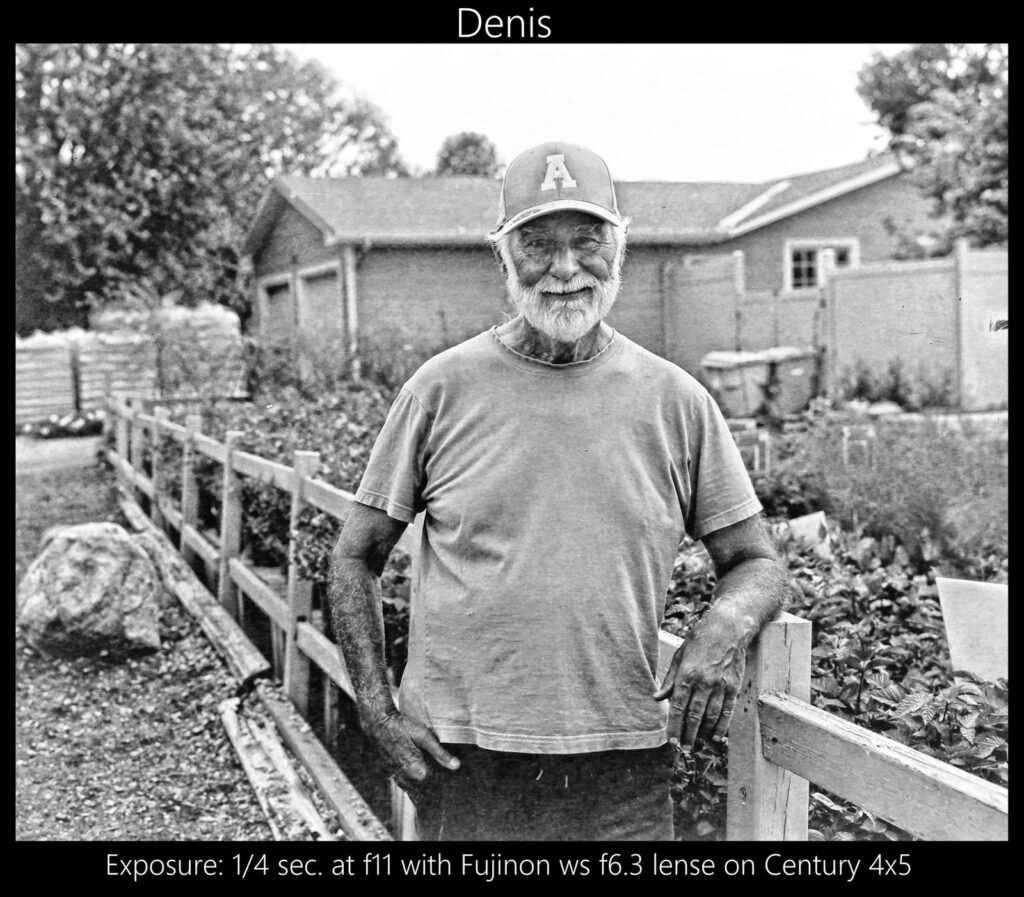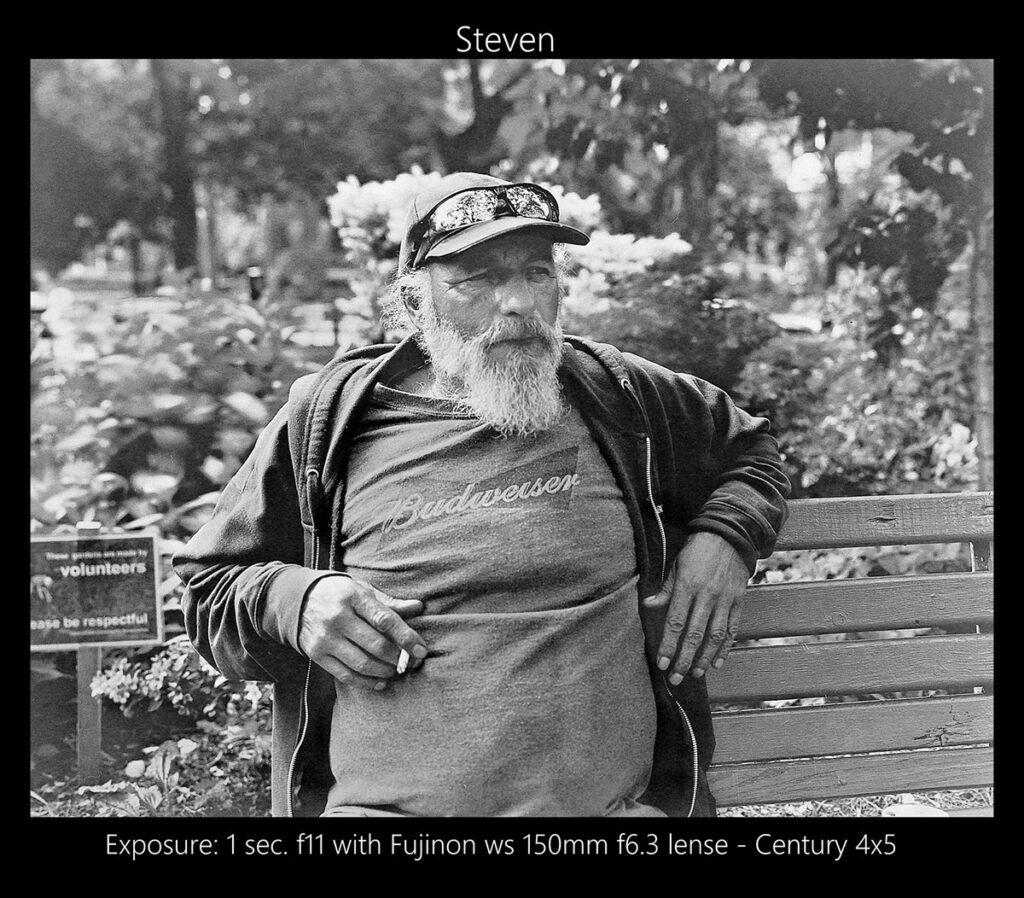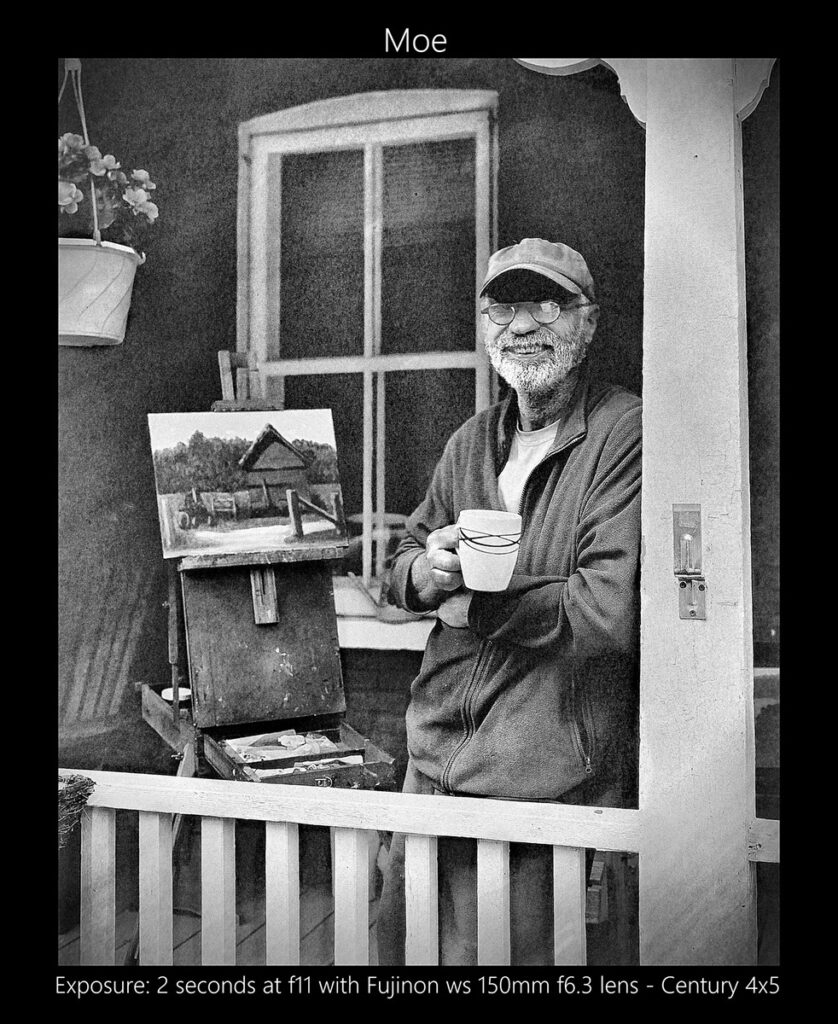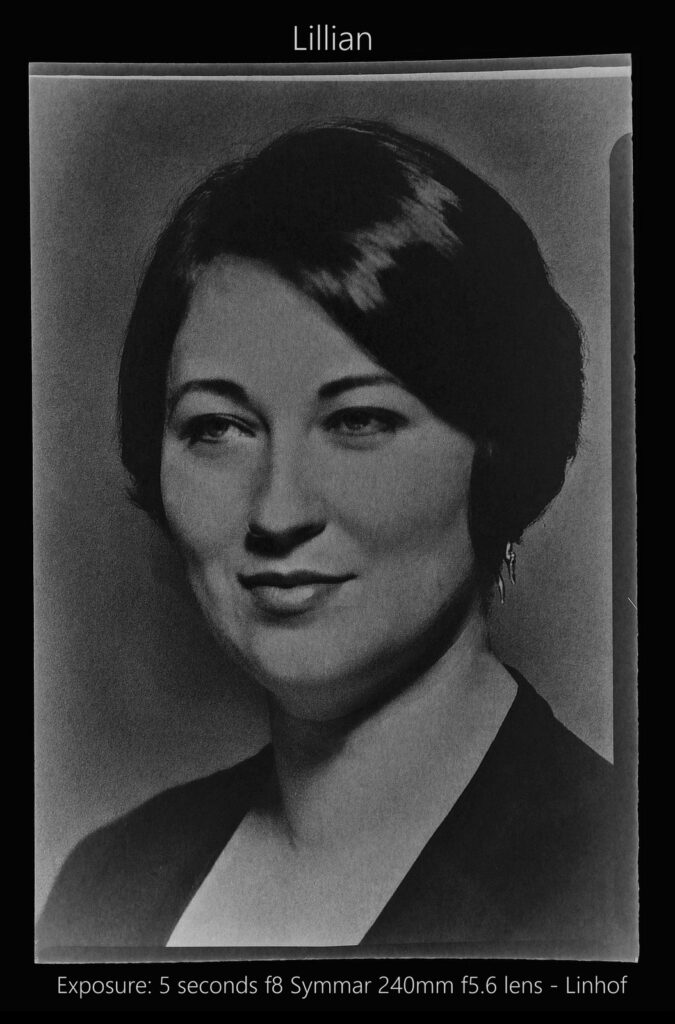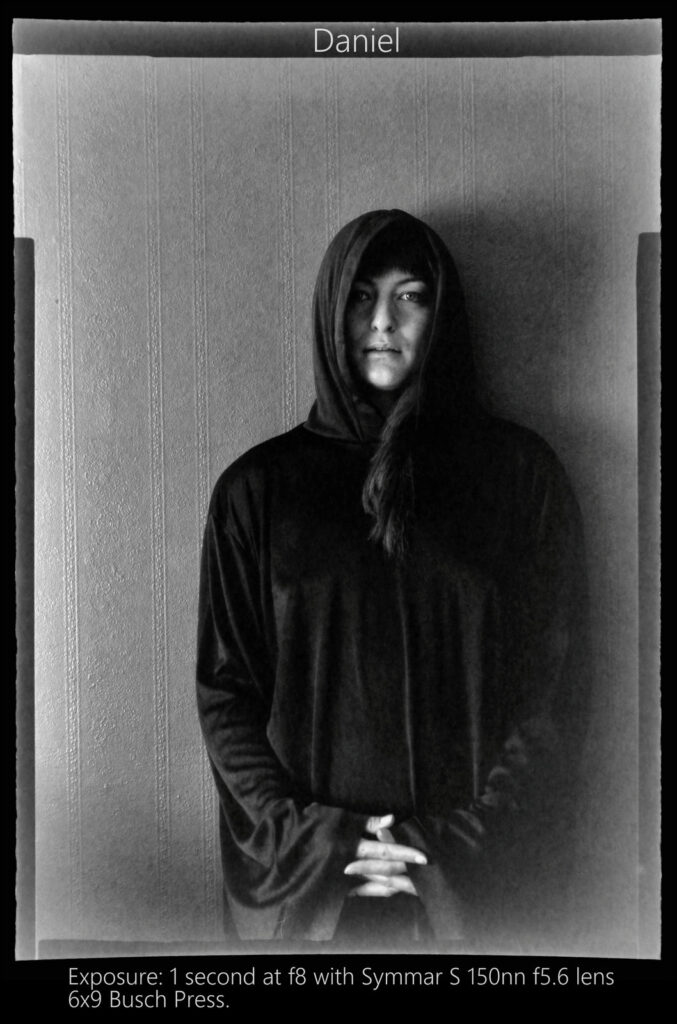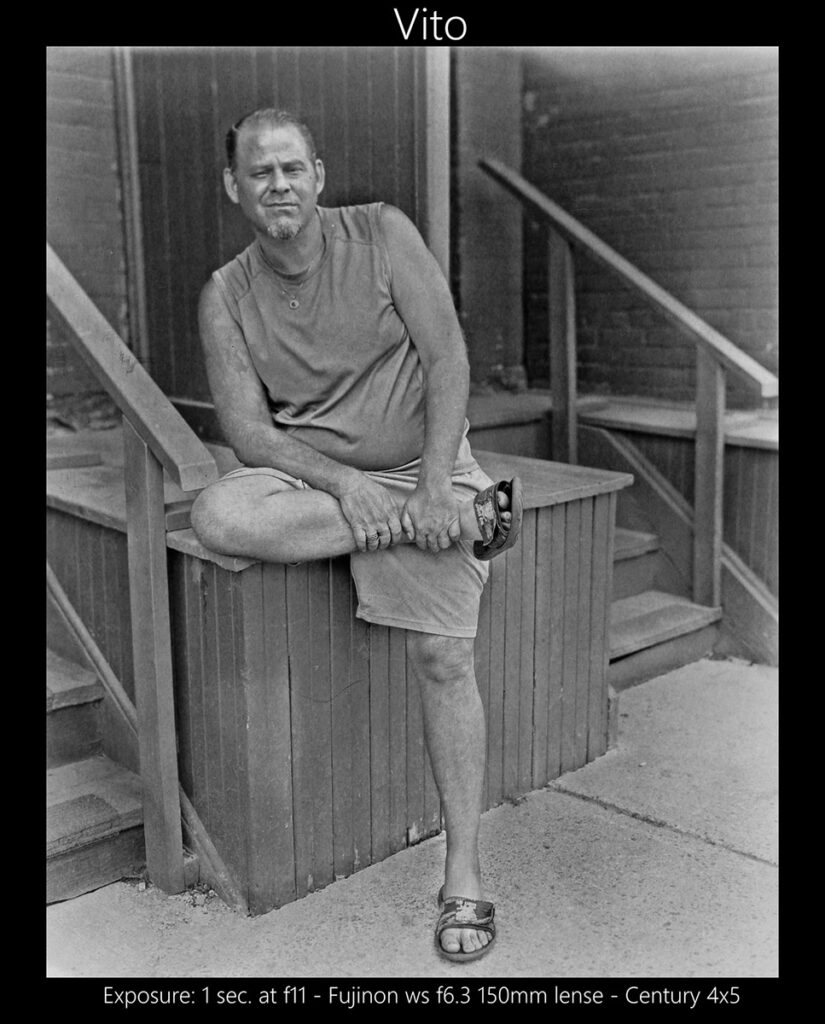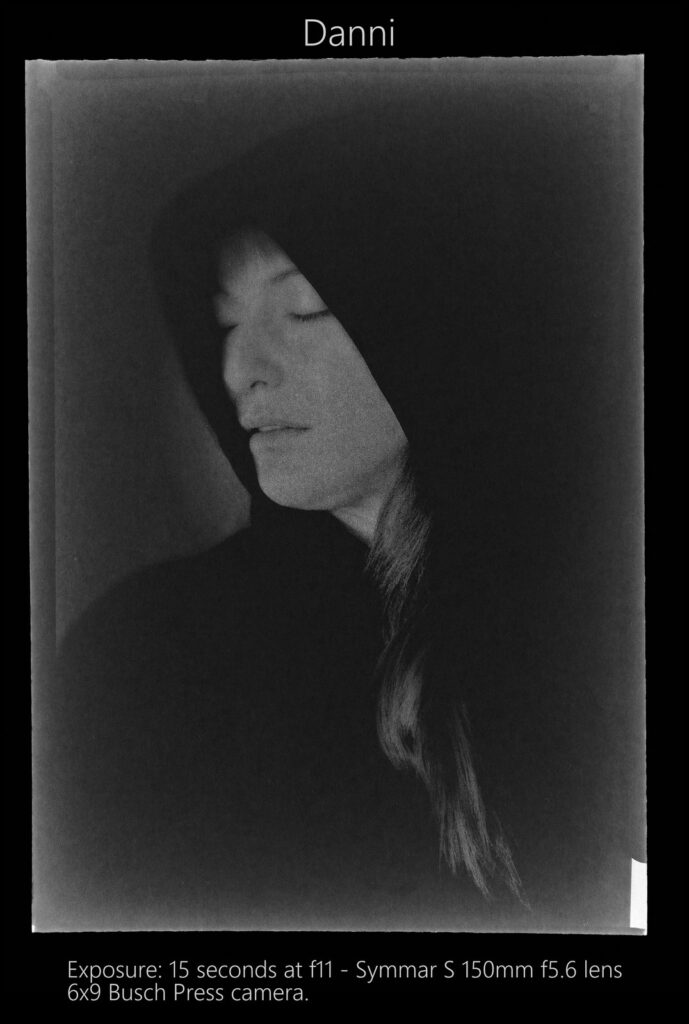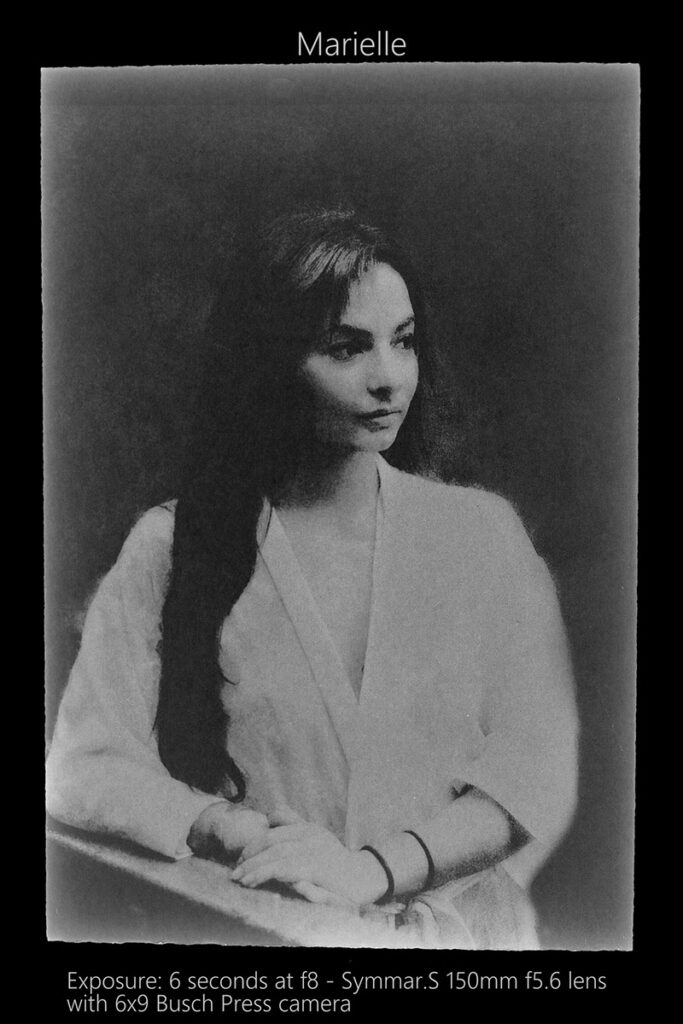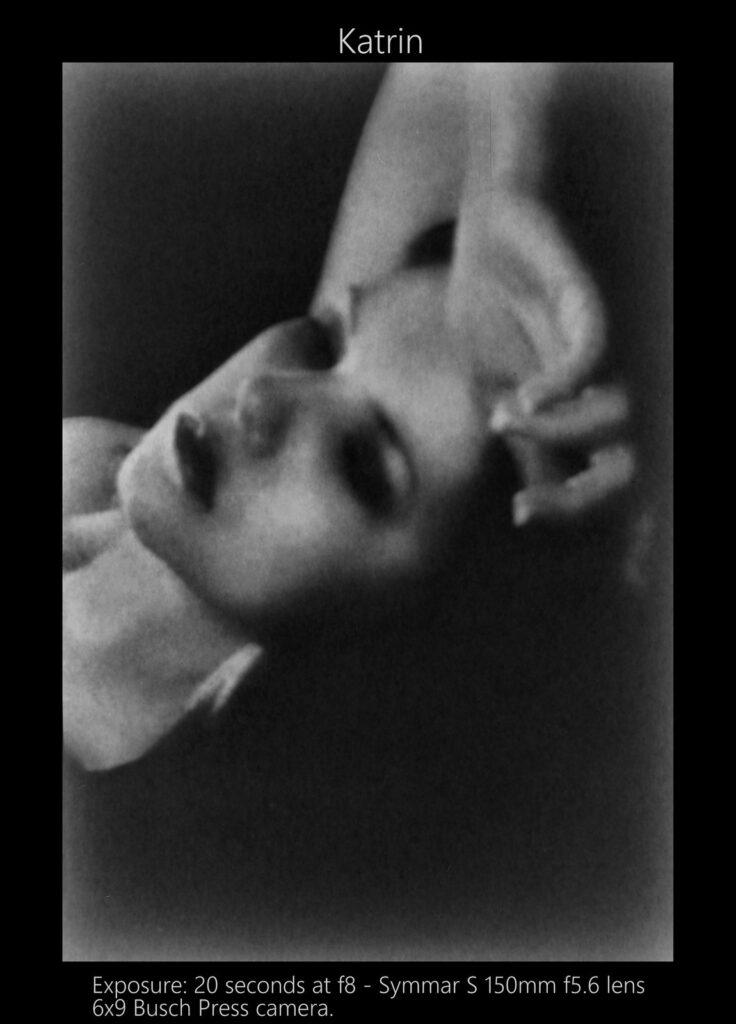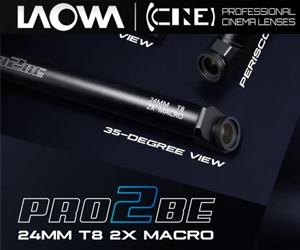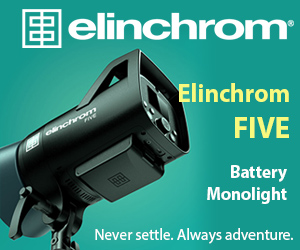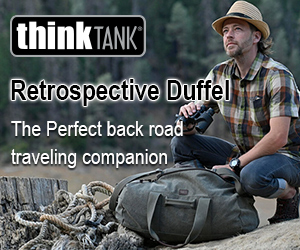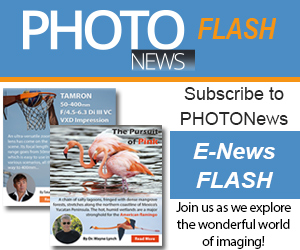‘Something Special’
There is a unique rendering to photographs made with Multigrade enlarging papers. It’s difficult to define, maybe it’s the timeless mood or perhaps it’s the mystical feeling, or even a haunting aura… it’s certainly there for me I like this very much!
Add to this, it’s super economical and can be visually handled via darkroom safelights. No more fussing around in total darkness which often requires the use strong language! Humour aside, I find the physical involvement of handling the paper, trimming it, loading the holders and finally the hand processing gives me a direct tactile connection with the final image. This is just wonderful as opposed to the impersonal wizardry of digital.
The nuts and bolts:
I primarily shoot with a vintage 6×9 Busch ‘press’ model camera. It’s super light weighing at .6kg. I’ve fitted it with shutter less 150 f5.6 Symmar-S lense which easily covers 6×9 without vignetting. This gem of a camera also has more than adequate front standard movements along with a drop bed. My 4×5 is a Century Model 46 or 12 not sure which, it is was American made circa 1900. I’ve mounted a Copal 1 Fujinon 150mm f6.3 lens on it. This lens I like a big bunch!
I use a Lunasix F meter 99% of the time with the incident dome in place. Worthy of mention, I’m very familiar with the zone system which has many devoted advocates, but for me, I need to work quickly and not be overly distracted by technical stuff. So, it’s incident metering for me for portrait scenarios.
Most photographers shy away from shooting portraits of people with paper negatives for what seems like very good technical reasons. The effective ISO means slow shutter speeds along with slow LF lenses – all of this suggests blurred or out of focus junk… Being a fearless shooter, I decided to give it a go knowing the technical hurdles I’d have to deal with. While not without some failures, I discovered how easy it was to get successful shots. The main issue is the subject moves during exposure. I found to my delight if my subjects knew they’d need to be still, they had no difficulty in holding their pose. And I hope you’ll agree that for the most part my subjects don’t look unnaturally ‘rigid’.
Ilford Multigrade glossy surface is my first choice. It gives me an effective ISO of 9 when processed in aged ID-11 undiluted usually for about 3-3.5 minutes. I’d suggest 1:1 with freshly mixed developer. By the way I highly recommend mixing ID-11 with distilled water and add a drop or two of a wetting agent, dishwasher soap is okay.
The secret of contrast control:
I photograph the negative by transmitted light, never, ever with reflected light. I simply place the paper neg on a diffused light tablet and then photograph it with my digital camera fitted with a good macro lens. In my experience image files from a digital camera are significantly superior to the files from a $900 reputable flatbed scanner.
Get out shooting and discover for yourself the magic of B&W: it’s you… not a computer chip.
* All photos made on Ilford Multigrade RC Glossy paper.
Processed by inspection in Ilford ID-11 diluted 1:1.
Incident metering with Lunasix F.
Effective ISO 9
About the Author
Crombie McNeill – My career spans 40 years with credits in National Geographic, Time, Newsweek. Maclean’s, Chatelaine, Stern, Fortune, Sports Illustrated, Financial Post, Paris Match, ELLE… and lots more!



